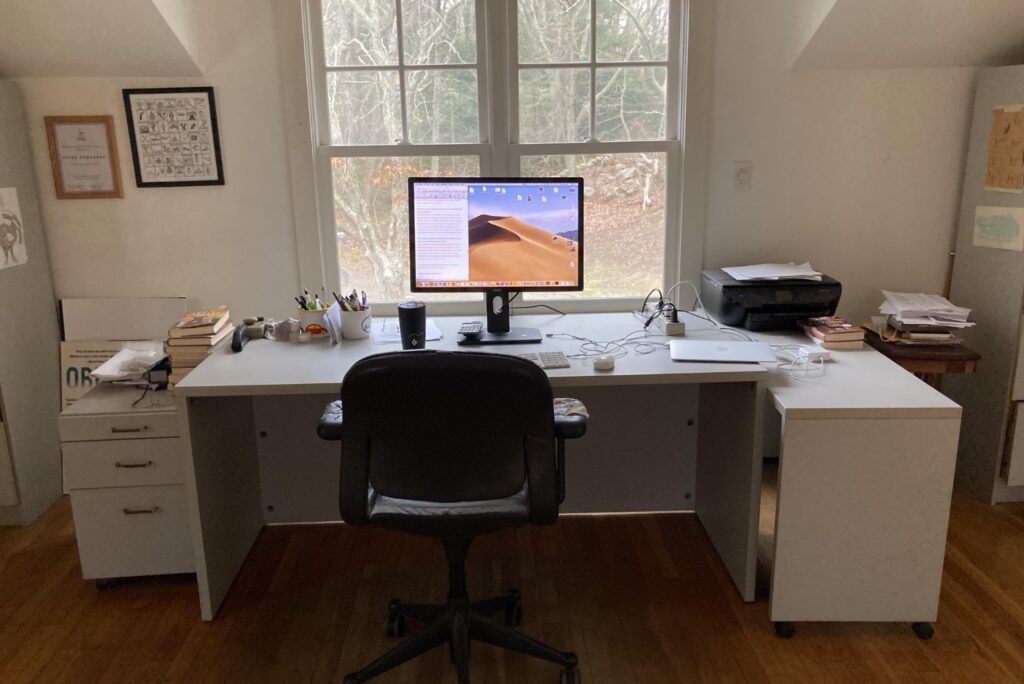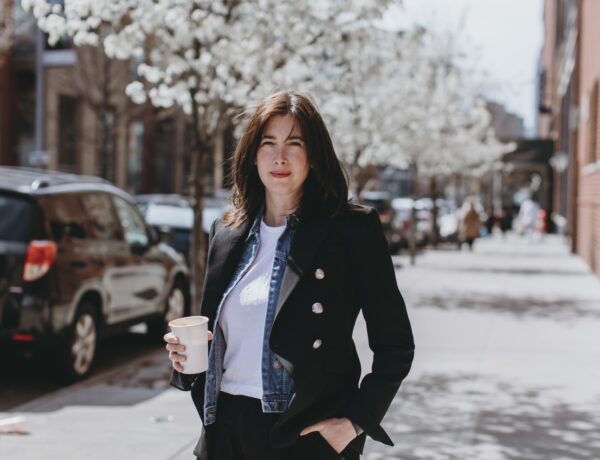Peter Abrahams is an award-winning American author of crime fiction for both adults and children. He was born in Boston and currently resides in Falmouth, Massachusetts on Cape Cod.
Abrahams has been influenced by the works of Vladimir Nabokov, Graham Greene, and Ross Macdonald and has been referred to as “my favorite American suspense novelist” by Stephen King.
He is a graduate of Williams College and is married with four children. Some of his notable works include Oblivion, The Tutor, The Fan, Reality Check, and the Echo Falls mystery series, which won the best children’s/young adult Agatha Award in 2005. The Fan was adapted into a film in 1996, starring Robert De Niro and directed by Tony Scott.
Looking for inspiration to help you achieve your writing goals? Subscribe to our newsletter for exclusive insights into the routines, habits, and techniques of some of the most celebrated authors in history.
Hi Peter! We’re delighted to have you as a guest on Famous Writing Routines. For our readers who may not be familiar with your work, could you please give us a brief introduction to yourself?
First, thanks for inviting me! Running my mouth about writing novels is a lot easier than writing them. I’ve written 46 novels and a dozen or so short stories, all of them landing somewhere in crime fiction territory. I began with seventeen standalones – Oblivion, A Perfect Crime, The Tutor, etc. – of which one, Lights Out, was a Edgar Award for Best Novel finalist, and another, The Fan, was made into a movie.
Toward the end of that period I also did some writing for younger readers. Reality Check won the Edgar in the Y.A. category. And then came the Chet and Bernie series, under my pen name, Spencer Quinn, a figment who began jostling for my professional identity. Mrs. Plansky’s Revenge, coming in July 2023, is definitely an Abrahams novel, but with a Quinn ID in its pocket.
Your book, Lights Out and The Fan are examples of your stand-alone novels, can you share with us the inspiration behind them and what readers can expect from them?
The reader can expect that each one will be different. I have a lot of trouble repeating myself – probably not a smart career choice but I didn’t choose it. A number of critics and readers have pointed out that I’ve resisted or rebelled against a lot of crime fiction norms and I won’t argue.
My mother – who taught me a lot about writing – held up originality as a kind of god. For more on writing, please check out my novel End Of Story, where crime and writing merge. As for inspiration – if by that we’re talking of things that come out of the blue – that’s my source for every book I’ve written. There’s really nothing like the feeling when the blue is suddenly upon you.
You also wrote for younger readers, beginning with the Echo Falls series, centered around thirteen-year-old Ingrid Levin-Hill. How does your experience as a father and your own childhood experiences influence your writing for younger readers?
Great question! I could have written the Echo Falls series even if I’d not had kids (what a parched life that would have been!) but it wouldn’t have been as good. I’d have missed so many of the telling details that make a story feel alive. And the fact that I was once thirteen myself – and can access the sensibility, like sawing through to the right tree ring – is the underlying source.
Discover the daily writing habits of authors like Stephen King, Neil Gaiman, and Gillian Flynn with Famous Writing Routines Vol. 1 and learn how to take your writing to the next level. Grab your copy today!
The dog characters in your novels, particularly Chet in the Chet and Bernie series, have received praise from readers. Can you talk about your process for creating such memorable and unique characters?
This is somewhat like the fatherhood question! I couldn’t have written the Chet and Bernie series if there hadn’t been dogs around all the time. I absorbed canine life by osmosis. The thing to remember about Chet, the narrator of the Chet and Bernie series (Bernie’s the private eye) is that he’s not a talking dog! He’s as canine as I can make him. So the C&B novels end up like those infrared photos of distant galaxies, where you see new things in what was familiar.
Also they’re fun to write. I just love writing in Chet’s narrative voice. That’s the process with C&B: I sit down and write in that voice. Plotting – the sine qua non of mystery writing – is for me the hardest part. How to be fair to the reader and still to surprise? Not so easy! But Chet doesn’t worry about things like that.
Up On The Woof Top (number fourteen in the series, but it can be read in any order) comes out in October 2023. Maybe I should add that the plotting of a single POV mystery, as in C&B, turns out to be more challenging than the plotting of multiple POV suspense, the opposite of what you might expect.
What does your creative process look like day-to-day? Can you walk us through a typical day in your writing routine?
Advance the story! That is my marching order. I work just about every day when I’ve begun the actual writing, usually starting in the late morning. Before that I’ve either gone for a bike ride – ten miles or so– or hit the gym, or played tennis.
I try for 1000 words a day, failing most of the time but at least advancing somewhat. And within the story itself I also try to be propulsive. A lovely passage describing the dying light on a seagull’s wings? Out it goes unless it moves the story forward. I revise at the end of every chapter, so the first draft is almost always a very close relative of what ends up between covers.
Can you talk about any specific tools or techniques you use to help with your writing routine, such as writing apps or brainstorming methods?
I don’t do either of those. What I do are the bike rides, already mentioned, where scenes quite often unspool unbidden in my mind. Ditto for long showers. In fact, I have an outdoor shower right outside my office. As for writing techniques, I’m very lucky that I got a solid education in the English language, with loads of grammar and vocab instruction at an early age. My style ended up being minimalist and very suited to noir, but I’m a romantic deep down so there’s your combo.
How do you manage to stay focused and motivated during the writing process?
I love what I do. Love seems to clear a lot of paths.
What does your writing workspace look like?
See photo. I’ve also included the view from the office back porch.

Affiliate disclaimer: Some links on this website are affiliate links. We may earn a small commission if you make a purchase through these links, but only promote products we truly believe in. We disclose affiliate links and give honest reviews.



No Comments